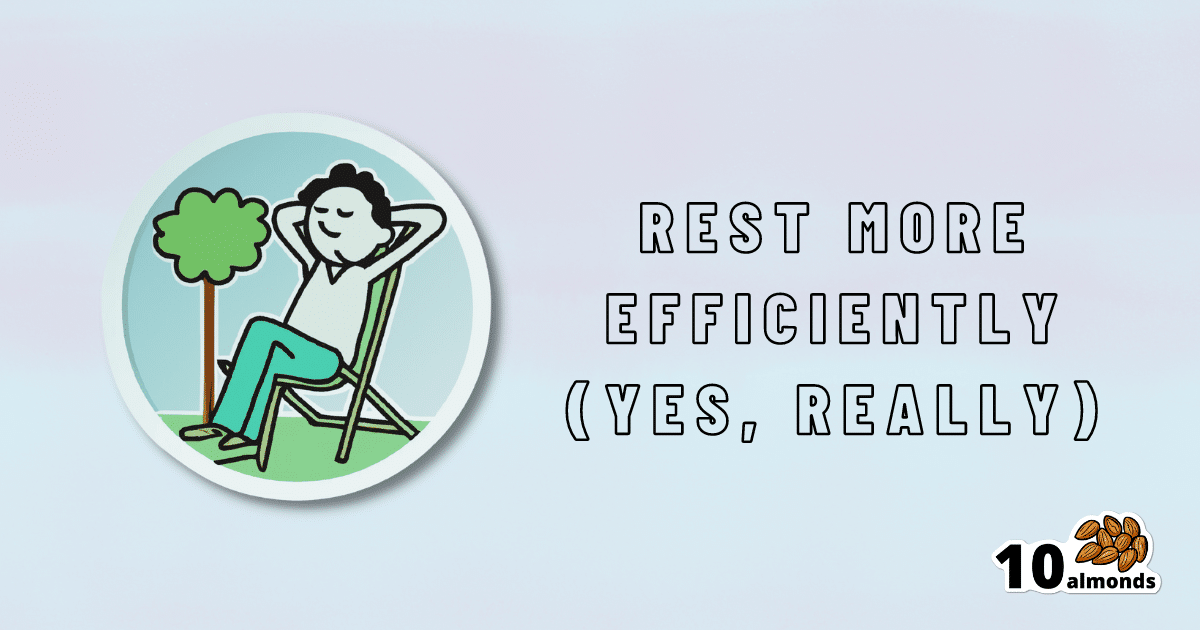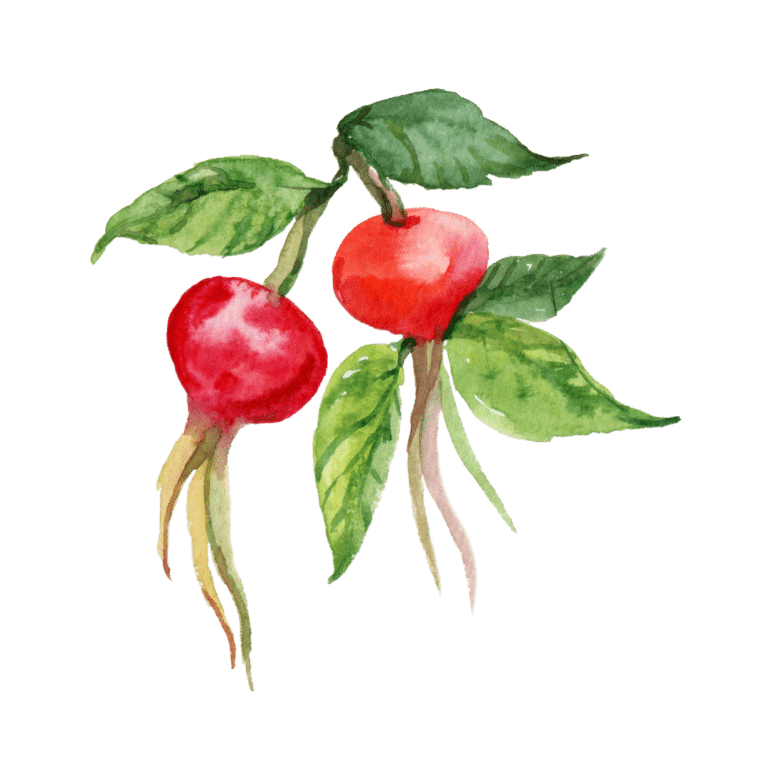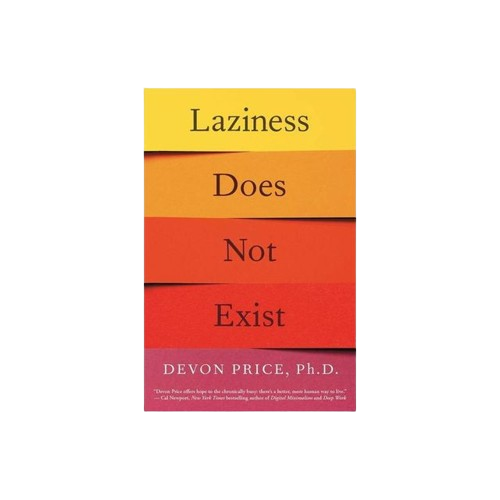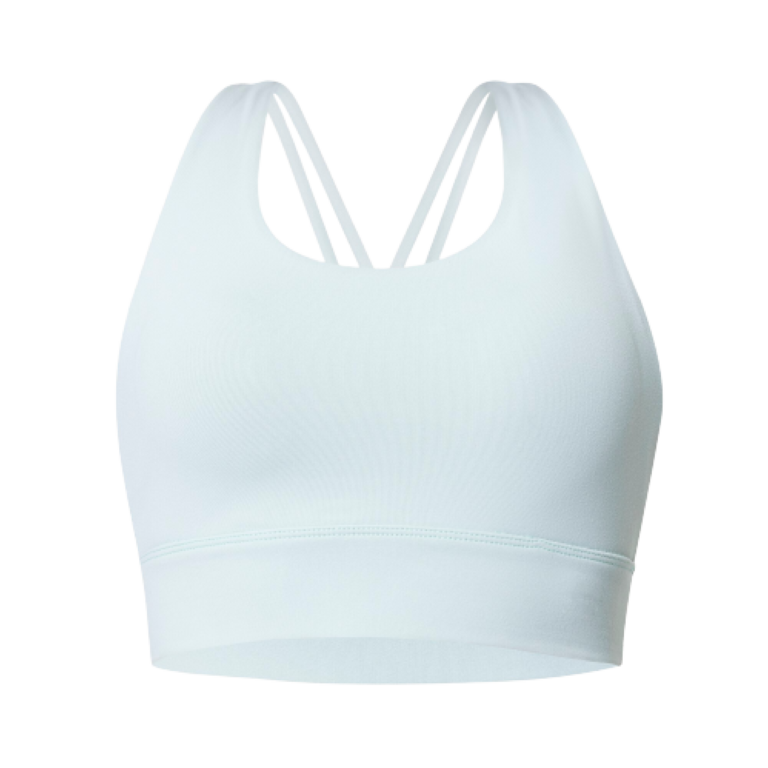How To Rest More Efficiently (Yes, Really)
How to Rest Efficiently (Yes, Really). Discover tips for recovering from exercise and giving your body a break. Learn about your resting metabolic rate and the importance of changing activities.

How To Rest More Efficiently (Yes, Really)
We’ve talked before about how to recover more quickly after a workout, especially if you overdid it. There are a lot of tips in that article, so by all means check it out if you didn’t catch it at the time!
That was very specific to recovering from exercise, though. Today we’re looking at something a little different, a little more holistic.
You’re busier than you think
Maybe your life is an obvious blur of busy-ness. Maybe it’s not. But either way, you’re almost certainly busier than you think. Especially on a cellular level.
Your resting metabolic rate (RMR), or how many calories you burn while at rest (i.e., calories used just to keep you alive) will depend on various factors including age, sex, weight, body composition, and other things.
That said, it’ll probably be between 1000 and 2000 calories per day. You can get a rough idea of what it might be for you, using this calculator:
How Many Calories Do You Burn a Day at Rest (Doing Nothing)?
So if ever you wonder why you feel so exhausted, despite having done nothing, it could be that your body was busy:
- Metabolizing, generally (did you have a big meal?)
- Fighting an illness (bacterial or viral infection, for example)
- Fighting an imaginary illness and creating a real one in the process (stress, inflammation, etc)
- Recovering/rebuilding from something you did yesterday or even before that
- Thinking (your brain is your largest organ by mass, and consumes the most calories by far)
Your brain does not get a free pass on being part of your body! Just like if a certain muscle group were working out constantly for 16 hours you’d be feeling pretty tired, the same goes for the organ that is your brain, if it’s been working out constantly.
Your body is a composite organism—take advantage of that
Dolphins can shut down half of their brain at once, to let each hemisphere of the brain sleep independently in shifts. We (except in the case of split brain patients, where the corpus callosum has been severed) can’t do that, but we can let different parts of the organism that is our body work in shifts.
This is the real meaning of “a change is as a good as a rest”:
If you’ve been doing cognitive work (at your desk perhaps, maybe managing a spreadsheet, say), then taking a break to do crosswords will not, actually, give you break. Because you’re still sitting manipulating letters and numbers. As far as your brain (still having to do work!) is concerned, it’s basically the same. Nor will checking out social media; you’re still sitting examining a screen.
Instead, time to get physically active. Literally just doing the washing up would be a better break! Some yoga or Pilates would be perfect.
In contrast, if you’ve been doing a vigorous bit of gardening, then for example taking a break to lift weights isn’t going to be a break, because again you just switched to a similar task.
Better to pick up that book you’ve been meaning to read, or the crosswords we mentioned earlier. Or just lounge in your nicely-gardened garden.
The important thing is: to not require the same resources from the body (including the brain, it’s still part of the body) that you have been.
For more specific tips than we have room for here today, check out:
How to Take Better Breaks at Work, According to Research
Give your metabolism a break too
Not completely—you don’t need to be put into cryostasis or anything.
But, give your metabolism a rest, in relative terms. Intermittent fasting is great for precisely this; it lets your body rest and reset.
See: Intermittent Fasting: we sort the science from the hype!
So does the practice of meditation, by the way. You don’t have to get fancy with it, either:
Check out: No Frills, Evidence-Based Mindfulness
Enjoy, and rest well!
Share This Post
Learn To Grow
Sign up for weekly gardening tips, product reviews and discounts.




